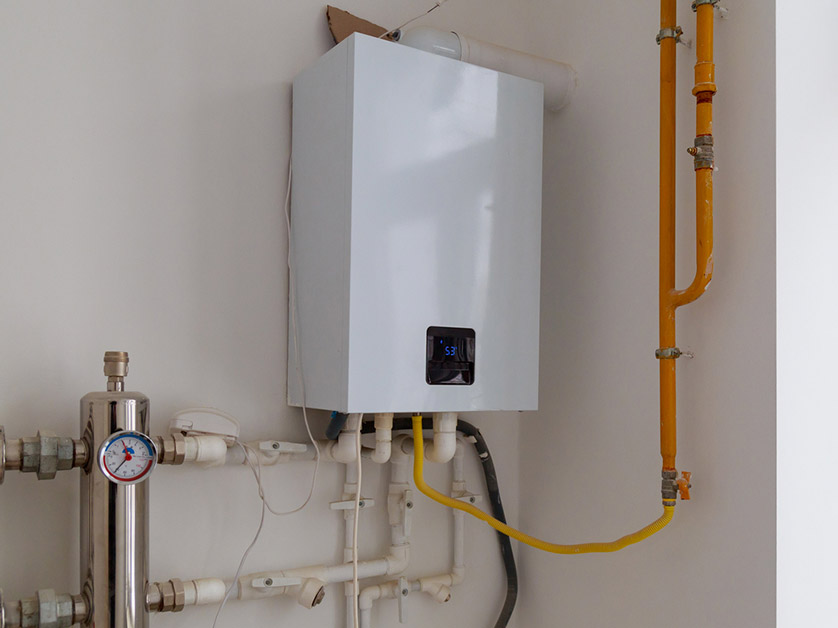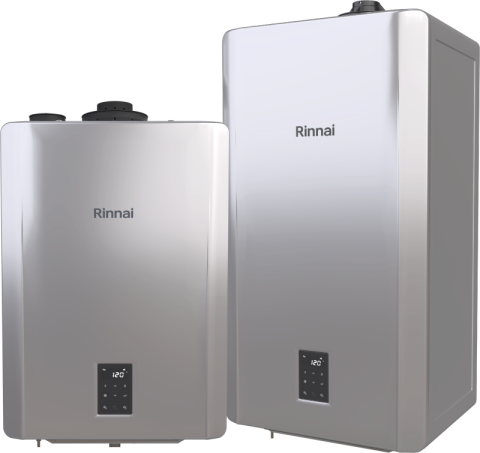Key Pros Of Embracing Tankless Water Heaters
Key Pros Of Embracing Tankless Water Heaters
Blog Article
The writer is making a number of good pointers about Six Benefits of a Tankless Hot Water Heater in general in this content further down.

In a world where comfort and effectiveness preponderate, it's not a surprise that home owners are regularly in search of smarter methods to handle their home's energy consumption and comfort. One advancement that has progressively acquired popularity is the tankless hot water heater. Yet what exactly makes these systems stand apart from the conventional tank-based versions most of us grew up with? Let's dive in and explore the advantages of tankless hot water heater, helping you determine if it's time to make the switch in your house.
Introduction
Picture this: you enter the shower after a lengthy day, anticipating a calming cascade of hot water, just to be greeted by icy beads since the last person utilized everything up. Audio familiar? Typical water heaters keep a set amount of hot water, indicating you're at the grace of that container's supply. Tankless systems, on the other hand, heat water on demand. No more running out mid-shower, no more wrestling with routines just to make sure warm water is readily available.
Comprehending Tankless Hot Water Heater
What Are Tankless Water Heaters?
Tankless water heaters, occasionally known as on-demand or immediate water heaters, offer warm water just as it's needed. Instead of keeping gallons of pre-heated water, these units kick right into activity the minute you turn on the faucet. Water goes through a heat exchanger, warming up in real-time, implying you obtain a continuous flow of warm water without the requirement for a huge container resting lazily by.
Just how Do They Vary from Traditional Systems?
Traditional heaters hold a reservoir of warm water, utilizing energy to keep that tank at a regular temperature. Tankless units eliminate the standing supply, cutting down on thrown away power and the large footprint of a huge cylinder. Basically, you're upgrading from a "stockpile" frame of mind to a "made-to-order" approach.
Typical Types of Tankless Units
Tankless hot water heater typically can be found in two ranges: gas and electric. Gas versions often tend to deliver higher circulation rates, ideal for larger families, while electric designs typically serve smaller homes and are normally easier to mount. Additionally, some systems are developed for point-of-use (offering one component) while others can handle the entire home's hot water needs.
Trick Advantages of Tankless Water Heaters
Power Effectiveness and Cost Savings
Say goodbye to heating up a giant storage tank's well worth of water and maintaining it toasty throughout the day. Tankless heaters lower standby energy losses, which can reduce energy costs. While the initial expense could be higher, the long-term cost savings frequently validate the financial investment.
3. Space-Saving Style
If your home is short on storage space, removing the bulky storage tank liberates beneficial room. Tankless devices are portable and can often be mounted on walls, concealed in corners, or mounted in tight energy closets without gobbling up the entire area.
4. Longer Lifespan
A properly maintained tankless water heater can outlast its tank-based relative. Conventional containers might last 10-15 years, while tankless designs can maintain chugging along for two decades or even more, making them a strong investment over time.
1. Limitless Warm Water Supply
Ever had to arrange showers so every person obtains their reasonable share of warm water? With tankless, that becomes a distant memory. As long as the heating system's circulation ability isn't exceeded, you can take back-to-back showers without developing into a popsicle.
5. Improved Water Quality
Storing water in a tank can sometimes cause debris accumulation or a slightly "off" taste. With tankless systems, fresh water is heated on the spot, minimizing the possibilities of sediment build-up and possibly using cleaner-tasting water.
Considerations Before Changing
Though the benefits are compelling, it's a good idea to think about a couple of elements before fully devoting.
Reviewing Your Home's Water Usage Patterns
If your family at the same time utilizes several fixtures with high warm water need, see to it the device's circulation price satisfies your needs. Understanding your use patterns aids you choose the best dimension and sort of tankless heater.
Maintenance and Care Tips
Tankless systems are reasonably low upkeep, but they aren't set-it-and-forget-it devices.
Normal Cleaning and Descaling
Tough water minerals can build up in the heat exchanger, impacting performance. Regular descaling (often suggested yearly) maintains the device performing at peak performance.
Yearly Specialist Examinations
A yearly checkup from a professional makes certain minor concerns are caught early. They'll analyze the device's performance, search for leakages, and help maintain optimal effectiveness.
First Investment Costs
Tankless heaters normally include a higher in advance cost. In between the device itself and prospective setup modifications, the initial price may give you sticker label shock. However remember to see it as a long-term investment.
Installment Demands
Depending on your home's facilities, you could need extra electrical capability or gas line upgrades. Ensure you comprehend the setup requirements and seek advice from an expert to avoid shocks.
Making Certain Appropriate Air Flow
For gas versions, correct air flow is important to safely eliminate exhaust gases. Make certain venting systems are tidy and appropriately set up to stop any kind of possible security dangers.
Comparing Different Brands and Versions
Not all tankless hot water heater are created equal.
Looking Into Trusted Producers
Try to find trusted brands with a history of producing quality systems. A reliable manufacturer frequently provides better customer assistance and longer warranties.
Installation: DIY or Professional?
While some homeowners relish taking on tasks themselves, tankless installment may not be the best time to break out the toolbox.
Benefits and drawbacks of Do It Yourself Installment
A DIY mount could conserve cash, but it features threats. Incorrect installment can lead to inefficiency or safety worries. If you're handy and have experience, it may be practical-- but wage caution.
Checking Out Evaluations and Customer Feedback
Customer evaluations and feedback from next-door neighbors or close friends that have actually gone tankless can supply important understandings. Often, real-life experiences can be a lot more telling than marketing brochures.
When to Call a Specialist Plumbing Technician
For most, calling a professional guarantees whatever's done properly. An expert plumber comprehends regional codes, sizing needs, and venting criteria, decreasing the threat of accidents.
Optimizing Performance
You've invested in a tankless system-- currently maximize its effectiveness.
Ideal Temperature Level Settings
The majority of people establish their units between 120-140 F. Changing the temperature can enhance convenience and savings. Experiment to discover a sweet area that does not waste power.
Coupling With Low-Flow Fixtures
Intend to stretch your device's capabilities? Take into consideration installing low-flow showerheads and faucets. They reduce water usage, enabling your tankless system to supply a constant stream of hot water without stressing.
Ecological Impact
Tankless hot water heater straighten with greener living goals.
Reduced Carbon Footprint
By using much less energy and only home heating water as required, tankless systems can reduce your home's carbon impact, minimizing your environmental effect.
Preserving Natural Resources
Less power intake and much less squandered warm water convert into fewer natural deposits being made use of, an environmental win-win.
That Benefits Most from Tankless Heating units?
The appeal of tankless heating systems is that they can fit a variety of households.
Big Families vs. Solitary Residents
Huge family members could like the countless hot water supply, while solitary residents value the power savings from not warming an entire tank for simply one person's early morning shower.
Home Owners with Limited Space
If your home is short on square footage, losing the bulky tank frees up room for other essentials-- or possibly simply much more elbow room.
Eco-Conscious Customers
Going tankless aligns with eco-friendly worths, ensuring you're not wasting power or resources.
Future Trends in Tankless Hot Water Heater
The globe of home appliances is ever-evolving, and tankless hot water heater are no exemption.
Improvements in Innovation
R&D is constantly boosting heat exchangers, making devices much more effective and sturdy. Future models could be also quieter, a lot more compact, and better suited for varying environments.
Smart Home Combination
Visualize changing your hot water heater's temperature level through an application or receiving maintenance signals on your phone. As clever home tech breakthroughs, we'll see even more connection and convenience.
Conclusion
Selecting a tankless water heater is more than simply updating your home's warm water system; it's buying lasting convenience, energy efficiency, and a greener way of life. By considering your house's water use, bearing in mind installment needs, and dedicating to routine upkeep, you can appreciate a constant stream of warm water without the baggage of a bulky storage tank. As innovation develops, you can eagerly anticipate also smarter, extra efficient tankless options that not just make your life easier however also profit the earth.
5 Benefits of Tankless Water Heaters
Save Valuable Space
Since tankless water heaters do not have a massive 40+ gallon tank of water, they are considerably smaller and can fit in more narrow spaces in your home.
If you are working with limited square footage, a tankless water heater will still provide you with the hot water you need while taking up significantly less space in your home. While the exact size of a tankless water heater varies depending on the brand, some are as small as a carry-on suitcase.
Endless Supply of Hot Water
While a traditional water heater preheats and stores your water in the tank, tankless water heaters do not rely on a reservoir system.
This means that they do not run out of hot water like traditional water heaters since they make hot water as needed. Traditional water heaters need to stop and reheat water when the tank inevitably runs out, but tankless water heaters do not have this issue.
Provide Warm Water On-Demand
As mentioned above, tankless water heaters do not preheat a certain amount of water and then store it in a massive tank to be used later. An advantage of installing a tankless water heater includes water being heated instantly whenever you turn on the faucet.
When you turn on the water, it will travel through a heat exchanger in the unit and be heated with either an electric element or a natural gas burner. Gone are the days of having to ration out your hot water to make sure that you do not run out.
Longer Life Cycle
Not only do tankless water heaters provide an endless supply of hot water for your home whenever you want it, but these units tend to have a longer lifespan than water heaters with tanks.
Tanked water heaters have an average lifespan of around 10 years, as the tank is prone to corrosion, leading to serious issues. In comparison, tankless water heaters can last for around 15 to 20 years with the proper maintenance and tune-ups.
Energy Efficient
Compared to traditional water heaters, tankless water heaters are a more energy-efficient water heating option for your home. Tank water heaters must heat and reheat the water stored in the tank throughout the day, even if you are not home.
This energy use adds up over time, leading to an increase in your energy bills and added strain on your unit. A benefit of buying a tankless water heater includes saving money since it only operates when you turn on the hot water. Since it only heats up as needed, this can decrease your energy bills and save you money in the long run.
https://callrandazzo.com/blog/5-benefits-of-tankless-water-heaters/

As a fervent person who reads about Six Benefits of a Tankless Hot Water Heater, I assumed sharing that excerpt was a great idea. Sharing is good. Helping others is fun. We love your readership.
Click Here Report this page